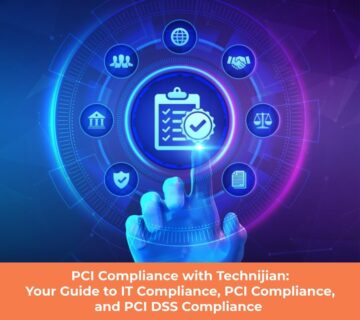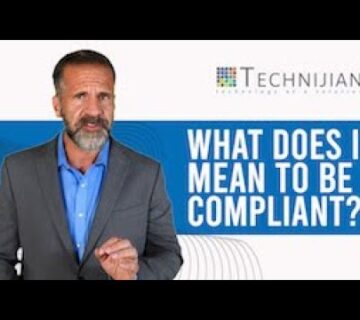IT Compliance: Safeguarding Your Business and Cultivating Trust in the Digital Era
In our modern, technology-driven environment, businesses are increasingly reliant on IT systems and data. IT frameworks are not just technical necessities but foundational elements that ensure business integrity and success, conforming to critical legal, regulatory, and industry-specific benchmarks. This adherence not only protects sensitive information but also shields companies from severe penalties, fostering trust between businesses and their clients.
Understanding IT Frameworks
The concept of IT compliance encompasses an organization’s adherence to a complex set of regulations, standards, and contractual obligations, including:
- Laws and Regulations: Such as the GDPR in Europe, HIPAA in the US healthcare sector, and the California Consumer Privacy Act (CCPA).
- Industry Standards: Including PCI DSS for businesses handling credit card transactions.
- Contractual Agreements: Stipulations laid out in contracts with clients or business partners.
- Internal Policies: Security protocols and data handling guidelines that define company expectations.
Recognizing that compliance is a continuous journey rather than a one-off task is crucial for sustained success.
The Critical Nature of Compliance
The necessity of maintaining arises from several key factors:
- Avoiding Penalties: Non-compliance can lead to regulatory fines, legal repercussions, and in extreme cases, criminal charges, impacting smaller enterprises profoundly.
- Maintaining Reputation: Failures in compliance that lead to data breaches can severely damage a company’s reputation, eroding customer trust and potentially causing significant business losses.
- Data Security: Many frameworks mandate robust security measures to protect sensitive data and reduce cyberattack risks.
- Customer Trust: Demonstrating adherence to compliance standards enhances customer relationships.
- Competitive Advantage: Being compliant can distinguish your business from competitors, making it more attractive to potential customers.
- Improved Efficiency: Compliance efforts often streamline processes, enhancing operational effectiveness.
Common Frameworks and Standards
Several frameworks might be relevant to your business, including GDPR, HIPAA, PCI DSS, ISO 27001, the NIST Cybersecurity Framework, and SOC 2. These are designed to ensure responsible data handling and security.
Steps to Achieving IT Compliance
Achieving compliance involves:
- Identifying Applicable Regulations: Understanding the laws and standards applicable to your industry and business size.
- Conducting a Gap Analysis: Evaluating current IT systems against those requirements to identify shortcomings.
- Creating an Action Plan: Outlining necessary changes, allocating resources, and setting timelines.
- Implementing Changes: Updating policies, upgrading technology, and training employees.
- Regular Audits and Reviews: Continuously monitoring and auditing systems to adapt to new risks or regulatory changes.
- Documentation: Keeping detailed records of compliance processes to demonstrate adherence during audits.
- Incident Response Plan: Preparing for potential data breaches or security incidents with a solid strategy.
How Technijian Enhances Your Compliance Efforts
Technijian offers specialized services that align with your compliance goals, including expertise and consulting for gap assessments, robust security solutions, disaster recovery planning, and continuous employee training. Partnering with Technijian not only reduces risks but also provides peace of mind, allowing you to focus on core business activities while staying competitive.
To learn more about how Technijian can support your IT compliance efforts, visit our compliance services page.
This strategic approach can significantly mitigate risks, enhance operational efficiency, and maintain a positive business reputation in the competitive digital marketplace.[/vc_column_text][/vc_column][/vc_row]


